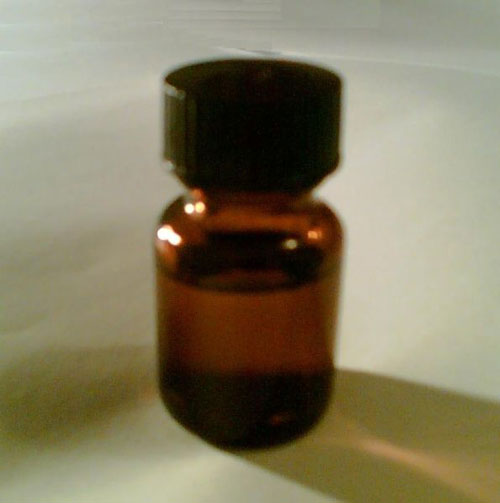Poppers
February 1975 to February 2008
Poppers is the street name for various alkyl and butyl nitrites, usually sniffed directly to obtain a mild 'high'. Extremely popular amongst gay men since the Disco scene of the late 1970s and the Hi-NRG days of the 1980s.
From Wikipedia...
Poppers is the street term for various alkyl nitrites taken for recreational purposes through direct inhalation, particularly amyl nitrite, butyl nitrite and isobutyl nitrite. Amyl nitrite has a centuries-long history of use in treating angina, as well as an antidote to cyanide poisoning. Amyl nitrite and several other alkyl nitrites which are used in over-the-counter products, such as air fresheners and video head cleaners, may be inhaled to enhance sexual pleasure. Use is particularly prominent among gay urban men. These products have long been part of the club culture from the 1970s disco scene to the 1980s and 1990s rave scene.
Effects
Inhaling nitrites relaxes smooth muscles throughout the body, including the sphincter muscles of the anus and the vagina. This causes the blood vessels to dilate (which causes a sudden drop in blood pressure), increases heart rate, and produces a sensation of heat and excitement that usually lasts for a couple of minutes.
Alkyl nitrites are often used as a club drug or to enhance a sexual experience. The head rush, euphoria, uncontrollable laughter or giggling, and other sensations that result from the blood pressure drop are often felt to increase sexual arousal and desire. At the same time, the relaxation of the sphincters of the anus and vagina can make penetration easier. It is widely reported that poppers can enhance and prolong orgasms.
While anecdotal evidence reveals that both men and women can find the experience of using poppers pleasurable, this experience is not universal. Some men report that poppers can cause erectile problems.
Users
TIME Magazine and The Wall Street Journal reported that the popper fad began among homosexual men as a way to enhance sexual pleasure, but "quickly spread to avant-garde heterosexuals" as a result of aggressive marketing. A series of interviews conducted in the late 1970s with construction workers, a "trendy East Side NYC couple" at a "chic NYC nightclub", a Los Angeles businesswoman "in the middle of a particularly hectic public-relations job" (who confided to the reporter that "I could really use a popper now."), along with the observation of frenetic disco dancers amid "flashing strobe lights and the pulsating beat of music in discos across the country", demonstrated a wide spectrum of users.
User surveys are hard to come by but a 1988 study found that 69% of men who had sex with men in the Baltimore/Washington DC area reported they had ever used poppers, with 21% having done so in the prior year. The survey also found that 11% of recreational drug users in the area reported using poppers, increasing to 22% among "heavy abusers", with an average age of first use of 25.6 years old. Both survey groups used poppers to "get high", but the men who had sex with men were more likely to use them during sex. It was reported that this group reduced usage following the AIDS epidemic, while the drug-users had not. A 1987 study commissioned by the US Senate and conducted by the Department of Health and Human Services found that less than 3% of the overall population had ever used poppers.
Use by minors is historically minimal due, in part, to the ban on sales to minors by major manufacturers for public relations reasons and because some jurisdictions regulate sales to minors by statute. A paper published in 2005 examined use of poppers self-reported by adolescents aged 12-17 in the (American) 2000 and 2001 National Household Surveys on Drug Abuse. 1.5% reported having used poppers; 1.8% of those over 14. Living in nonmetropolitan areas, having used mental health services in the past year (for purposes unconnected with substance use treatment), the presence of delinquent behaviours, past year alcohol and drug abuse and dependence, and multi-drug use were all associated with reporting the use of poppers. In contrast to these low rates, a survey in the North West of England found a rate of 20% self-reported use of poppers among 16 year olds.
Street names
Amyl Nitrite, manufactured by Burroughs Wellcome (Now GlaxoSmithKline) and Eli Lilly and Company, was originally sold in small glass ampules that were crushed to release their vapors, and received the name "poppers" as a result of the popping sound made by crushing the ampule. Today, generic-like street names include 'poppers', RUSH®, Locker Room®, Snappers, and Liquid Gold®. Many brand names exist and are in use in different localities.
Health Issues
High doses of nitrites may cause the rare methemoglobinemia, especially in individuals predisposed towards such a condition. It is suggested that taking Viagra with nitrites could cause a serious decrease in blood pressure, leading to fainting, stroke, or even heart attack. As poppers increase pressure within the eyeball, users with glaucoma take additional risks when using poppers.
Have a memory of this? Signup today and tell us about it! or login!